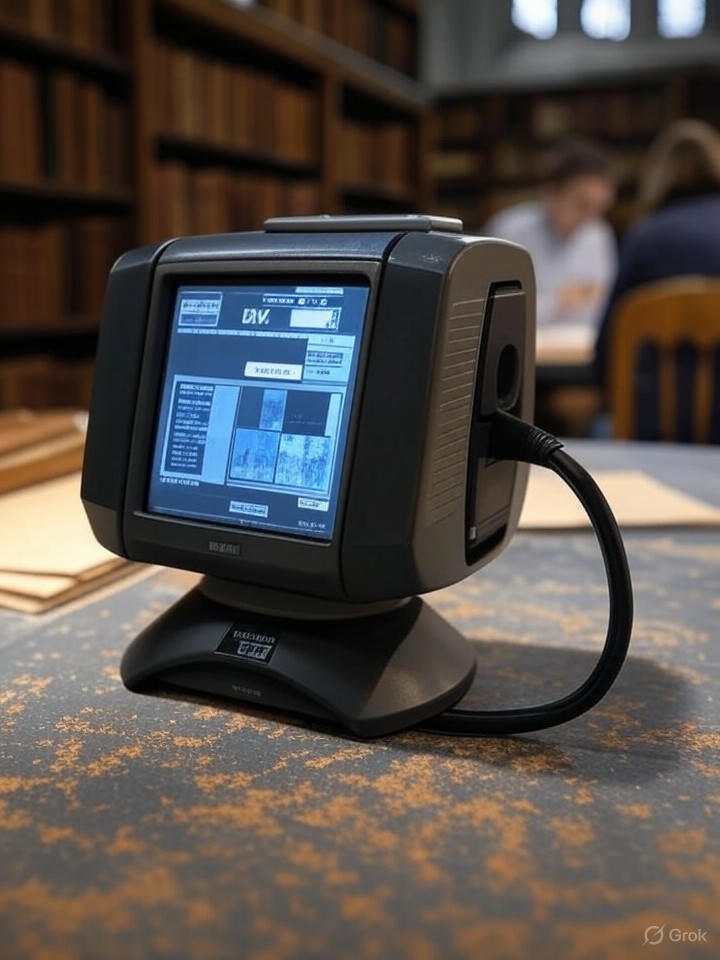Science
Cambridge’s Festival of Floppies Revives Digital Heritage

A unique event took place on October 9, 2023, at the Cambridge University Library, where the Festival of Floppies revived the legacy of floppy disks, addressing the challenges of digital preservation. This gathering of archivists, retro-computing enthusiasts, and conservation experts focused on the urgent need to preserve these magnetic storage devices, which were prevalent in personal computing from the 1980s to the 1990s. Organized under the auspices of the Future Nostalgia project, the festival served as a platform for participants to explore the significance of floppy disks that are now at risk of degradation.
Participants engaged in hands-on workshops to learn about disk imaging using specialized tools such as the KryoFlux device. This technology captures raw magnetic flux data, allowing for the preservation of files as well as the disks’ structural integrity. The event underscored the importance of intervention, as floppy disks are susceptible to damage from mold, dust, and magnetic decay, potentially jeopardizing irreplaceable cultural artifacts, including personal letters and early digital art.
Collaboration and Knowledge Sharing
Collaboration was a central theme at the festival, attracting individuals from various fields, including libraries, archives, and gaming communities. Speakers presented on topics ranging from ethical considerations in data recovery to effective cleaning techniques for contaminated disks. One notable presentation examined the challenges posed by non-standard formats, demonstrating how the trial-and-error approaches of retro-computing hobbyists have become invaluable resources for professional archivists.
The agenda included practical sessions on disk imaging workflows, emphasizing the necessity for standardized best practices in preservation efforts. According to a post on the Digital Preservation at Cambridge University Libraries blog, the event fostered a sense of community, with attendees sharing personal stories of “disk disasters” and successes, such as salvaging data from seemingly unrecoverable media. This exchange of knowledge is crucial, particularly as floppy disks often enter collections through donations from retirees or estates, sometimes containing historical treasures like documents from Stephen Hawking.
Innovative Tools for Digital Preservation
Technical demonstrations showcased advanced tools that extend beyond standard USB drives, highlighting why consumer-grade readers are inadequate for preservation tasks. The KryoFlux enables bit-level imaging, creating precise digital replicas that can be further analyzed and migrated to contemporary formats. Participants also explored software like the HxC Floppy Emulator, which assists in emulating older hardware environments to access locked files.
Conversations at the festival also addressed the broader implications of digital heritage preservation, including the environmental considerations of maintaining physical media versus transitioning to cloud storage solutions. The festival celebrated floppy disks not merely as outdated technology but as gateways to personal and cultural histories, with artistic installations reflecting the pixelated aesthetics of the era.
Looking ahead, the Festival of Floppies serves as a model for similar initiatives across the globe, aiming to prevent what some refer to as a potential “digital dark age.” By documenting workflows and sharing resources, Cambridge seeks to empower smaller institutions that may lack specialized equipment. Leontien Talboom, a prominent figure in Cambridge’s digital preservation team, noted success stories from the event, including the imaging of disks from the library’s own collections, which harbored unpublished manuscripts and early software prototypes.
The festival’s legacy extends to advocating for policies that ensure funding and training in digital preservation, crucial for safeguarding today’s data from future obsolescence. As floppy disks gradually fade from use, the insights gained at this event—melding nostalgia with cutting-edge technology—provide a blueprint for preserving our evolving digital heritage, reaffirming that the effort of preservation is as much about innovation as it is about remembering the past.
-

 World2 weeks ago
World2 weeks agoGlobal Air Forces Ranked by Annual Defense Budgets in 2025
-

 World3 weeks ago
World3 weeks agoMass Production of F-35 Fighter Jet Drives Down Costs
-

 Top Stories2 weeks ago
Top Stories2 weeks agoNew ‘Star Trek: Voyager’ Game Demo Released, Players Test Limits
-

 Science3 weeks ago
Science3 weeks agoTime Crystals Revolutionize Quantum Computing Potential
-

 Top Stories3 weeks ago
Top Stories3 weeks agoDirecTV to Launch AI-Driven Ads with User Likenesses in 2026
-

 World3 weeks ago
World3 weeks agoElectrification Challenges Demand Advanced Multiphysics Modeling
-

 Entertainment3 weeks ago
Entertainment3 weeks agoFreeport Art Gallery Transforms Waste into Creative Masterpieces
-

 Lifestyle2 weeks ago
Lifestyle2 weeks agoDiscover Reese Witherspoon’s Chic Dining Room Style for Under $25
-

 Health2 weeks ago
Health2 weeks agoGavin Newsom Critiques Trump’s Health and National Guard Plans
-

 Lifestyle2 weeks ago
Lifestyle2 weeks agoLia Thomas Honored with ‘Voice of Inspiration’ Award at Dodgers Event
-

 Entertainment2 weeks ago
Entertainment2 weeks agoFast & Furious Coaster Hits the Track at Universal Studios
-

 Science2 weeks ago
Science2 weeks agoWaning Crescent Moon: What to Expect on October 17








